Want more conversions?
Well, it's possible.
However, the first step is realizing that conversions are people. And those individuals desire a remarkable customer experience.
The key is to remove barriers in the sales cycle. This includes cumbersome checkout processes and poor follow-up sales procedures.
Your SaaS team must perform better. It's one of the best ways to crush the competition.
“Successful sales people, and successful sales teams, exhibit a superior ability to eliminate the common barriers that would otherwise prevent their prospects from making buying decisions,” writes Bob Apollo, managing partner at Inflexion-Point Strategy Partner.
“They take pains to identify how and why their prospects choose to buy, and what they need to do to straighten the path and remove the obstacles that might stand in their way.”
Earn more sales. Solve these five obstacles blocking your SaaS conversions:
1. Too Many Steps to Sign Up
Do you remember that classic Tootsie Roll commercial? The one that challenged kids to answer the question: How many licks does it take to get to the center of a Tootsie Roll Pop?
Kids would literally waste an entire afternoon counting their licks.
Your SaaS team should ask a similar question. How many clicks does it take for a customer to convert?
People don't enjoy time-consuming tasks. And if they're ready to buy, prospects don't want to spend the next 15 minutes clicking through all your useless sales steps.
“Asking your users for a lot of information even before they've seen your app could backfire.
Marketers tend to get greedy with information, but the more info you require, the more friction you introduce. If you're asking for more information up front, make sure to justify each action to eliminate friction,” states Sadhana Balaji, a product marketer at Chargebee.
So, limit the number of steps it takes for a prospect or free trial user to sign up for your service.
According to MarketingSherpa, “by optimizing step one of its sign-up funnel, 1-800-DENTIST lifted conversions by 23% in less than a week.”
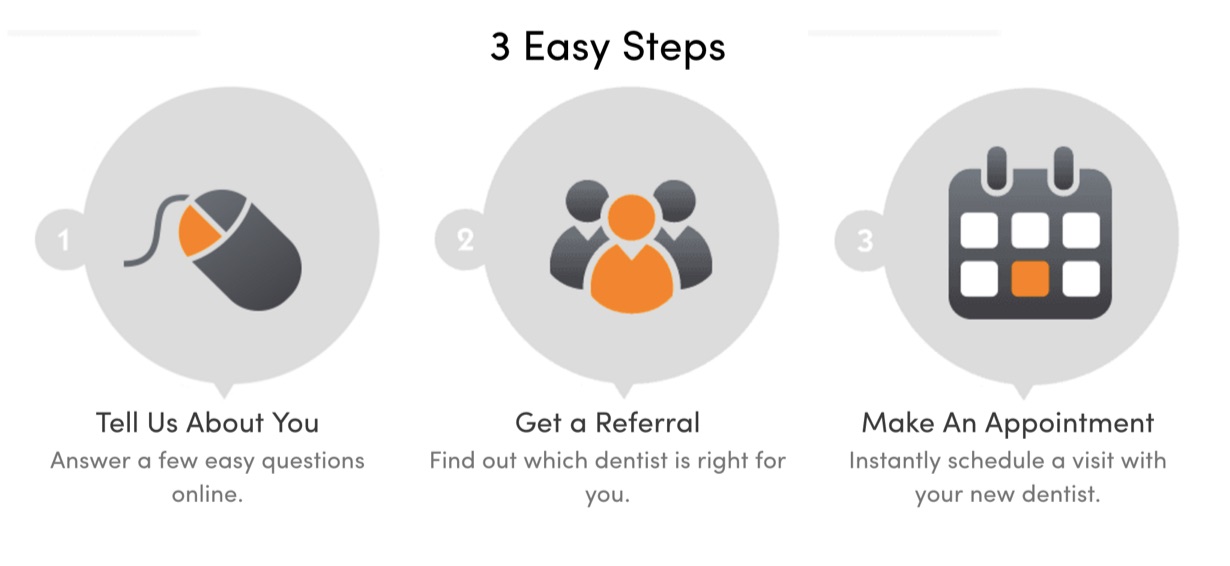
Moreover, as you decrease the steps in the process, consider eliminating the multiple add-on features during initial setup.
Studies show that “contrary to economic belief that more choice is better, confronted with too much complexity, we make bad decisions, or stick with what we have already got.”
Thus, overwhelmed prospects may just abandon their sale completely.
Save the customer time and boost your revenue. Remove the 12-step signup process.
2. Treating Every Prospect the Same
People are different. We don't think the same. We don't eat the same foods. And the needs of a 20-year-old woman are different from an 80-year-old man.
This concept holds true within your target audience. Prospects are buying your products for different reasons. Some may desire the all-in-one platform, while others love the 24/7 email support.
Use your customers' differences to your advantage. Start segmenting.
Segmentation helps your team sell specific product benefits to different users.
“If you are looking for segmentation ideas, a great place to start is by asking the sales team about the various roles and buyers they speak to on a regular basis…Use the information you gather from sales to create segmentation strategies that will resonate with your audience,” states Anna Talerico, executive vice president of ion interactive.
The goal of segmentation is to customize the shopping experience. You want prospects to feel like you're talking directly to them.
Graphic design tool Snappa sends targeted emails to their subscribers based on their position in the sales funnel. Here's an example of their process flow diagram:
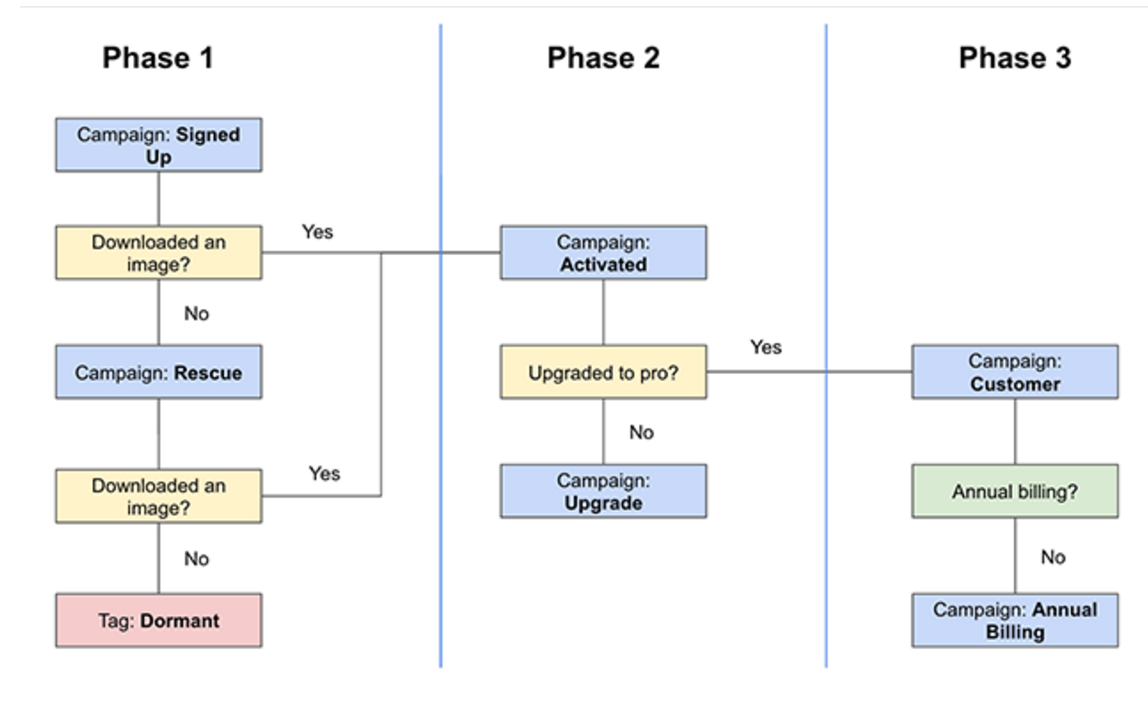
“Marketing leaders must have a single view of the customer that allows them to engage in two-way, personalized conversations across technologies, locations, and physical objects at mass scale,” says Joydeep Bhattacharya, author of Seo Sandwitch Blog.
Don't get stuck selling everything to everybody. Differentiate your message.
3. Nurturing Like A Used Car Salesman
Research reveals that “65% of B2B marketers have not established lead nurturing campaigns.” Without a clear path, your SaaS team may be causing more harm than good.
Poor lead nurturing results in unethical sales practices, missed deals, and negative brand image. No one wants 10 voicemails in a day from a salesperson.
Rather, strive to educate and build a relationship with your prospective user. That means informing them about your product, not selling.
“It's about giving the right content to the prospect at the right time, and you can only do this by watching for signs that they're progressing through the buying cycle. This is done through lead scoring…,” says Sarah Burke, content writer and marketer at Spokal.
Learn where the buyer fits into the sales process. Then, adjust your lead nurturing efforts accordingly.
The image below details the types of content that fit the buying cycle. Top of the funnel prospects may desire video, while the bottom of the funnel consumers may need quotes.
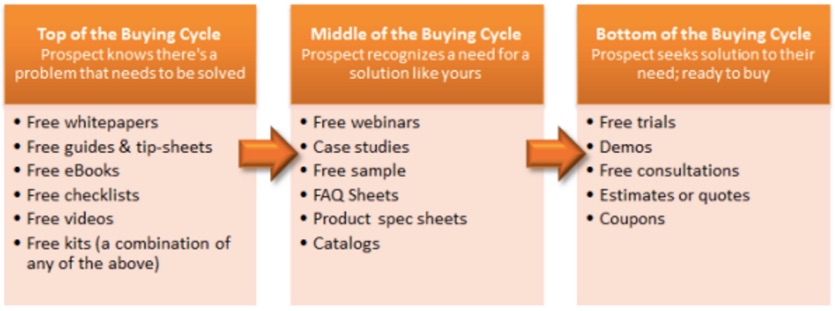
Moreover, lead nurturing is built on trust. If buyers don't trust your brand, it's time to add some social proof to your sales message.
“Trust badges are also known to increase conversions. Getting a BBB seal can put people at ease knowing that you've been vetted by one of these organizations. You'll also want an SSL certificate to show that your payment gateway is secure and trustworthy,” writes Sid Bharath, an entrepreneur and growth hacker.
Sell with the intention to build relationships.
4. Value is Unclear
Studies indicate that “91% of organizations said they aspire to be among the customer experience leaders in their industry, yet only 37% had started a formal CXM (customer experience management) initiative.”
To jumpstart your CXM program, figure out what value you offer your users. It should be clear and concise.
Aim to make an emotional connection between your product and the consumer's needs.
Invision's value proposition is simple. The SaaS offers people the opportunity to design and collaborate efficiently. They want their customers to design with confidence.
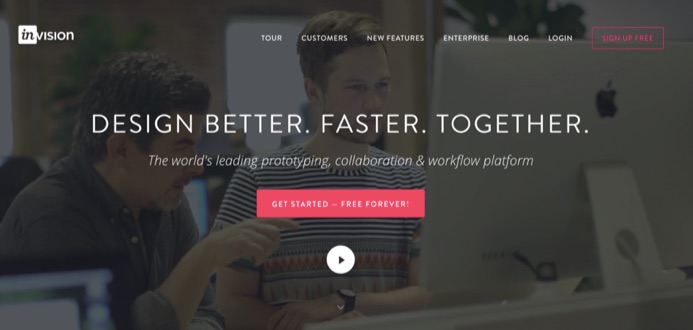
Kevin Dewalt, a startup founder, investor, and advisor, suggests offering incentives to portray value. He states:
“Offer additional purchasing incentives to customers who complete Acceleration events to get them to convert early. Examples of purchasing incentives are coupons, annual contracts, or special offers. Or simply tell them to enter a credit card now so they don't lose service.”
Take control the customer experience. Show the value of your service.
5. Redesign Your Sales Page
Adobe reports that “38% of people will stop engaging with a website if the content/layout is unattractive.”
Customers want eye-catching websites. Your design must grab and hold their attention.
In addition, with loads of information at buyers' fingertips, it is rare for someone to call a sales department.
So, if customers don't like what they see, they may just leave. That's why your sales page must explain your product and address your consumer's concerns.
“As buyers spend more of their time self-educating before contacting sales…the pricing page of SaaS websites has reached critical importance in the buyers' journey for enterprise SaaS sales..,” writes Brian Devaney, inbound marketing strategist at New Breed Marketing.
Unbounce's sales page is an exemplary example. It tells prospects what they will receive and the prices. And the layout is clean with ample white space.
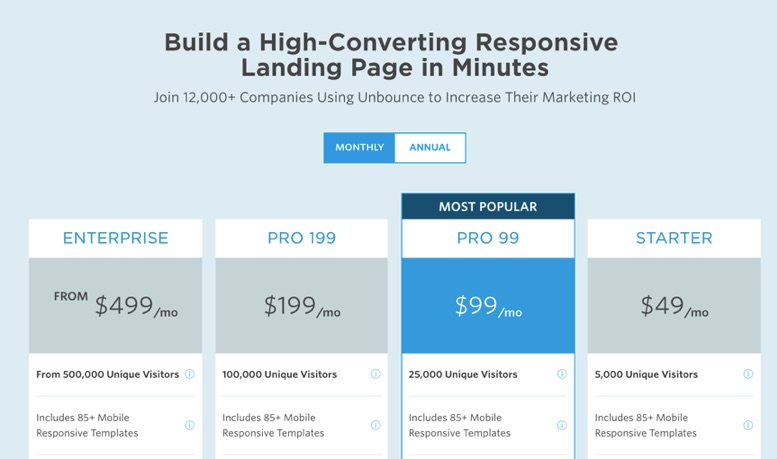
Evaluate your sales page. Is it time to change the copy or the layout?
No More Barriers
Eliminate the roadblocks in your sales cycle. Gain more users by improving the overall experience.
Ditch the multiple steps to sign up. Stop mass selling with one message. And revamp your sales page from the customer's perspective.
Get rid of the obstacles. Start converting.
About the Author: Shayla Price lives at the intersection of digital marketing, technology and social responsibility. Connect with her on Twitter @shaylaprice.
No comments:
Post a Comment